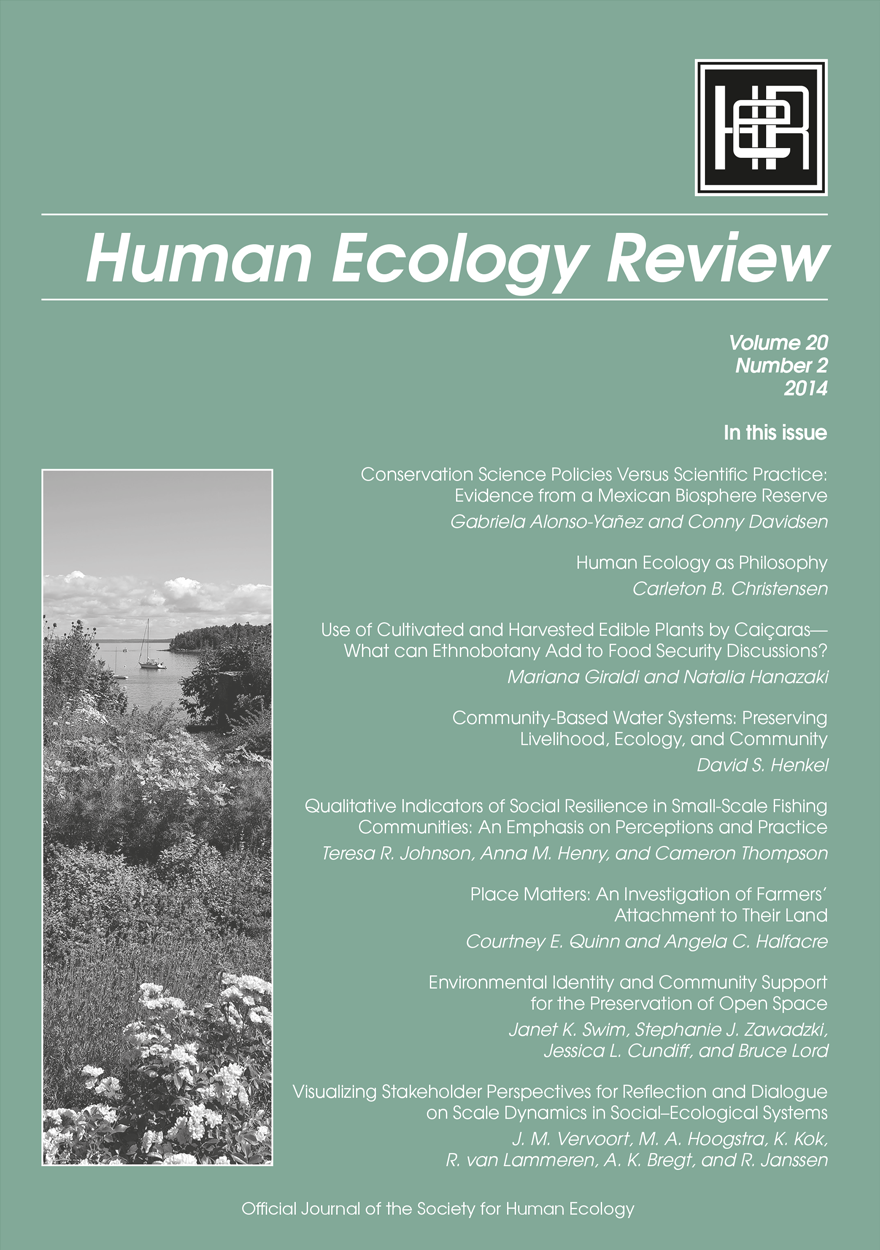Human Ecology Review
Human Ecology Review (HER) is a semi-annual journal that publishes peer-reviewed interdisciplinary research on all aspects of human–environment interactions (Research in Human Ecology) and reviews books of relevance to the journal’s subject matter and the interest of its readers. HER will not publish manuscripts that are purely biophysical nor ones that are purely sociocultural and it will not publish manuscripts that are monodisciplinary or specialisations to a specific discipline. Authors are strongly encouraged to make clear their manuscript’s connection to an understanding of human ecology and human ecological scholarship more broadly.
Ownership and management
Human Ecology Review is the official journal of the Society for Human Ecology.
Publishing schedule
Human Ecology Review is published by ANU Press twice yearly, in the first and second half of the year.
Access
Human Ecology Review is an open-access journal, available from ANU Press. Individual print-on-demand copies are also available from ANU Press at the same address. Hard copies are available from Society for Human Ecology to subscribing members who selected to pay a premium for them when they registered. These copies are automatically mailed to these members.
Back copies of Human Ecology Review are available from ANU Press to Volume 21(2). JSTOR hosts all back issues.
Copyright and licensing
All issues published from Volume 24(2) onwards are published under Creative Commons Attribution-NonCommercial-NoDerivatives 4.0 International (CC BY-NC-ND 4.0). Issues published previous to this are under a standard copyright licence.
Authors retain copyright of articles published in this journal.
Revenue sources
The cost of publishing Human Ecology Review is covered by Society for Human Ecology member fees in the spirit of open access to knowledge and its distribution. There are no costs to authors for publishing in or submitting an article to HER.
Readers of Human Ecology Review are strongly encouraged to become members by contacting the Society at info@societyforhumanecology.org.
Author fees
There are no fees charged to authors for publishing work in Human Ecology Review.
Peer review process
Manuscripts that conform to the author instructions are allocated to an associate editor who has expertise in the area addressed by the manuscript. The associate editor arranges blind peer review and recommends publication, amendment or rejection to the chief editor. The chief editor makes a final decision based on that recommendation. Resubmitted manuscripts may be subject to further review.
Process for identification of and dealing with allegations of research misconduct
If the Editor or an Editorial Board member receives a credible allegation of misconduct by an author, reviewer or editor, then they have a duty to investigate the matter, in consultation with the publisher and Editorial Board. If the claim is substantiated, the Editor will follow the guidelines set out by COPE for retracting or correcting the article in question.
Publication ethics
Authors may be asked to confirm that the ethical dimension of their research was approved by an independent ethics review process within their institution, or as conforming to their national standards for research ethics. If necessary, documented evidence of ethics approval may be asked for. Plagiarism and fraud are not tolerated by the journal and would be dealt with under the ‘research misconduct’ guidelines above.
Duties/responsibilities of authors
To generate a manuscript that conforms to the author guidelines, and to assert that permission has been obtained for any copyright material, and that the research was conducted in accordance with appropriate ethical guidelines and is their own work, unless otherwise acknowledged.
Duties/responsibilities of editors
To publish material suitable for the journal Human Ecology Review in a timely manner and to freely make that material available to readers globally. Editors should be vigilant in guarding against, and reporting, any suspicion of academic malpractice.
Duties/responsibilities of reviewers
To provide a critically engaged, honest, and unbiased recommendation on the suitability of the manuscript for publication in the journal. Reviewers are encouraged to provide feedback to contributing authors in the spirit of supporting and encouraging improvements to their academic skills.
Editorial team
- Editor in Chief: Robert Dyball, Australian National University
- Book Review Editor: Thomas J. Burns, Department of Sociology, University of Oklahoma
-
Copy Editors: Ngaire Kinnear, Message Connect Editing
Tracy Harwood, Editing and Indexing Services
Contact: info@societyforhumanecology.org
Board members
- Jordan Besek, University of Buffalo, SUNY
- Annie Booth, University of Northern British Columbia
- Rich Borden, College of the Atlantic
- Debra Davidson, University of Alberta
- Federico Davila, University of Technology Sydney
- Federico Dickinson, Cinvestav-Merida
- Thomas Dietz, Michigan State University
- Adam Driscoll, University of Wisconsin, La Crosse
- Alan Ewert, Indiana University
- Angela Franz-Balsen, German Society for Human Ecology
- Luc Hens, Flemish Institute for Technological Research
- Cassandra Johnson Gaither, USDA Forest Service
- Andrew K. Jorgenson, Boston College
- Stefano Longo, North Carolina State University
- Priscila Lopes, Universidade Federal do Rio Grande do Norte
- Andrew MacKenzie, The Australian National University
- Thom Meredith, McGill University
- Angela Mertig, Middle Tennessee State University
- Iva Pires, Universidade Nova de Lisboa
- Liam Phelan, University of Newcastle
- Melinda Storie, Northeastern Illinois University
- Mihnea Tanasescu, Free University of Brussels
- Joanne Vining, University of Illinios, Urbana
- Rachael Wakefield-Rann, University of Technology Sydney
- Cory Whitney, University of Bonn
Manuscripts should be submitted online via http://mstracker.com/submit1.php?jc=her. Authors should follow the guidelines on the Society for Human Ecology (SHE) webpage https://www.societyforhumanecology.org/instructions-for-authors. Attributions should only be made where authors have had a direct intellectual contribution in writing the manuscript.
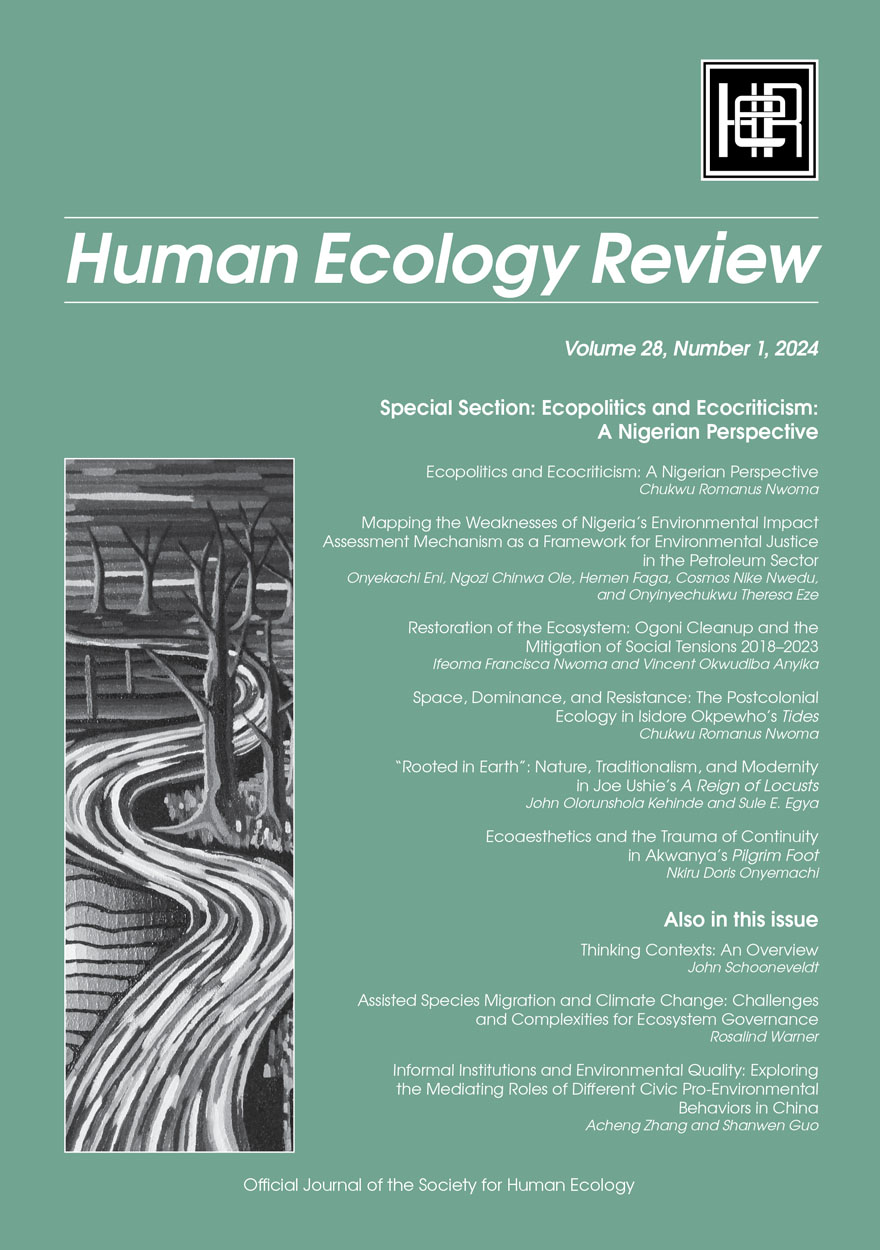
Human Ecology Review: Volume 28, Number 1 »
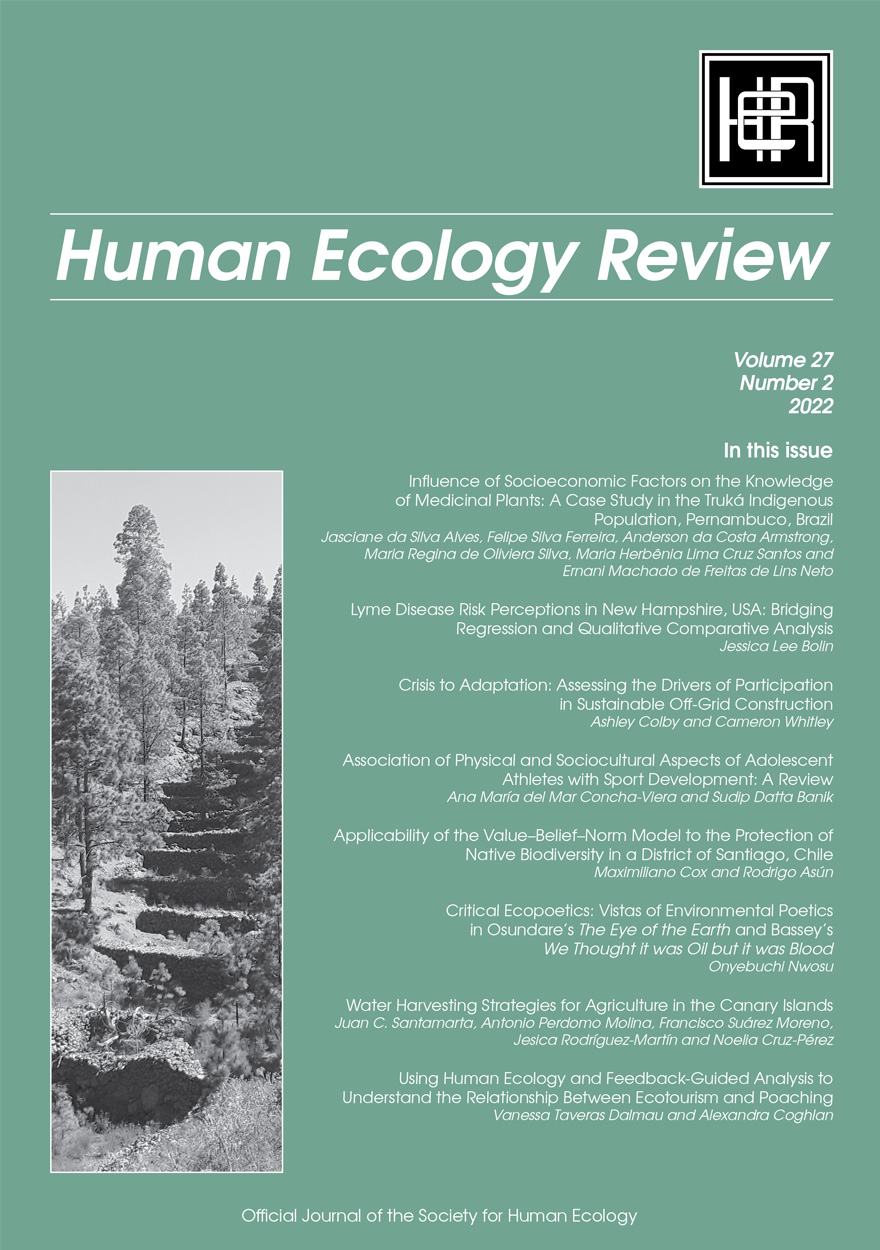
Human Ecology Review: Volume 27, Number 2 »
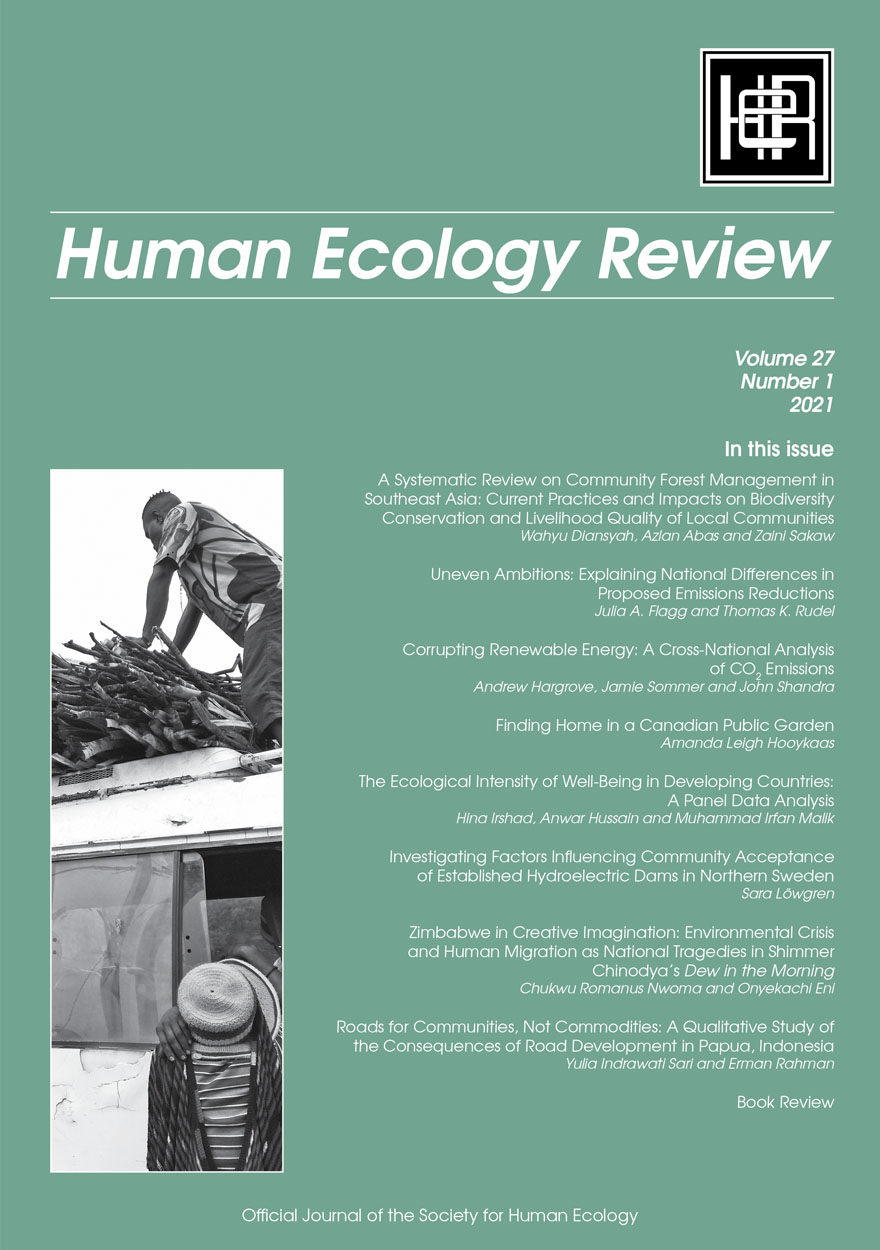
Human Ecology Review: Volume 27, Number 1 »
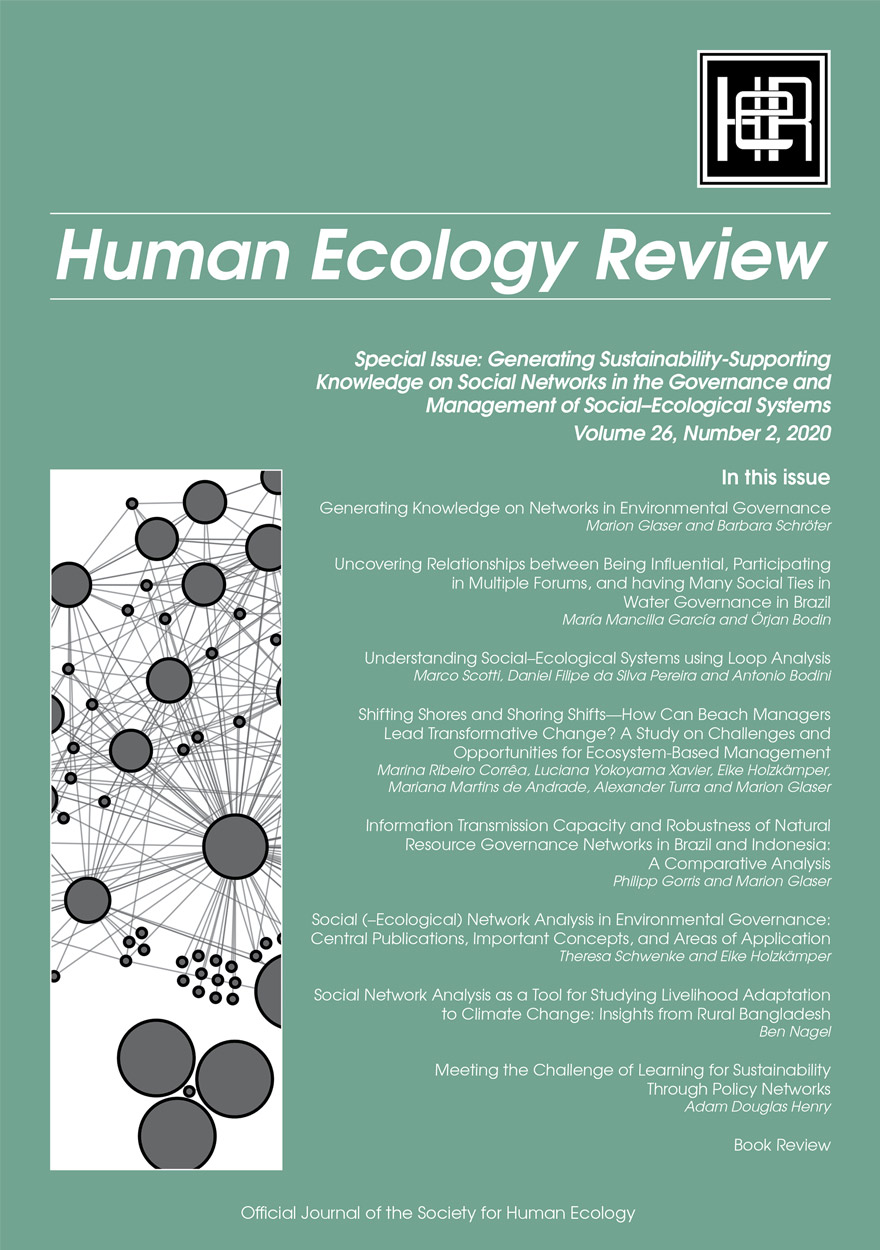
Human Ecology Review: Volume 26, Number 2 »
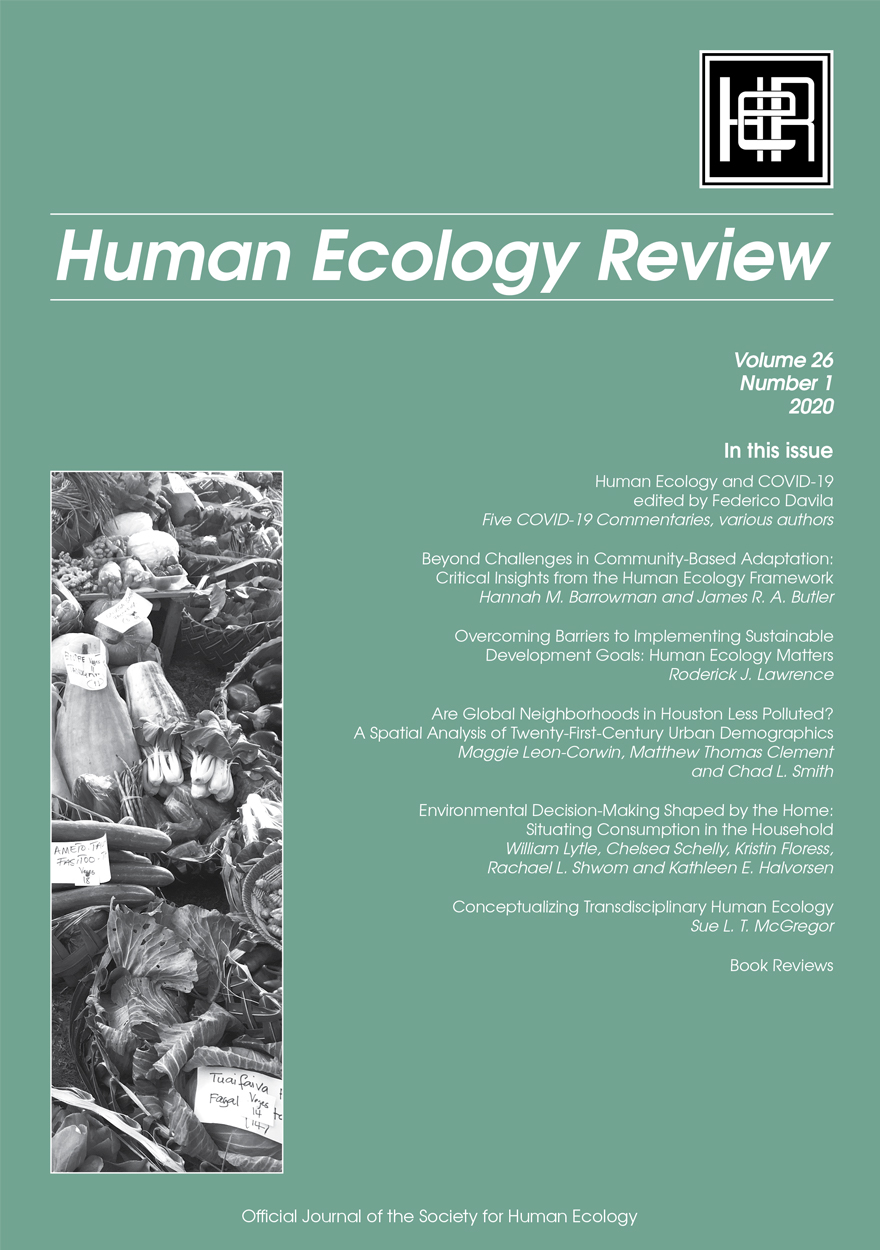
Human Ecology Review: Volume 26, Number 1 »
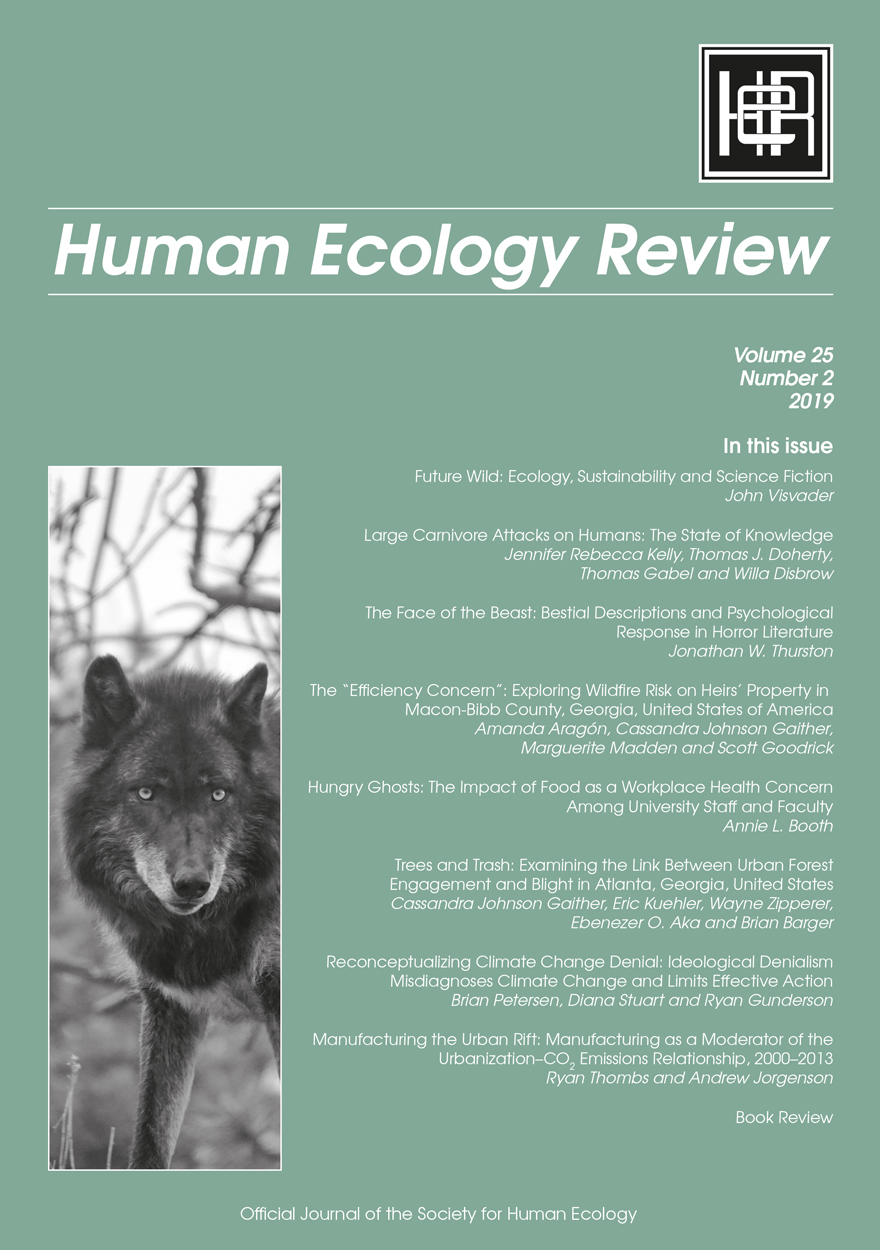
Human Ecology Review: Volume 25, Number 2 »
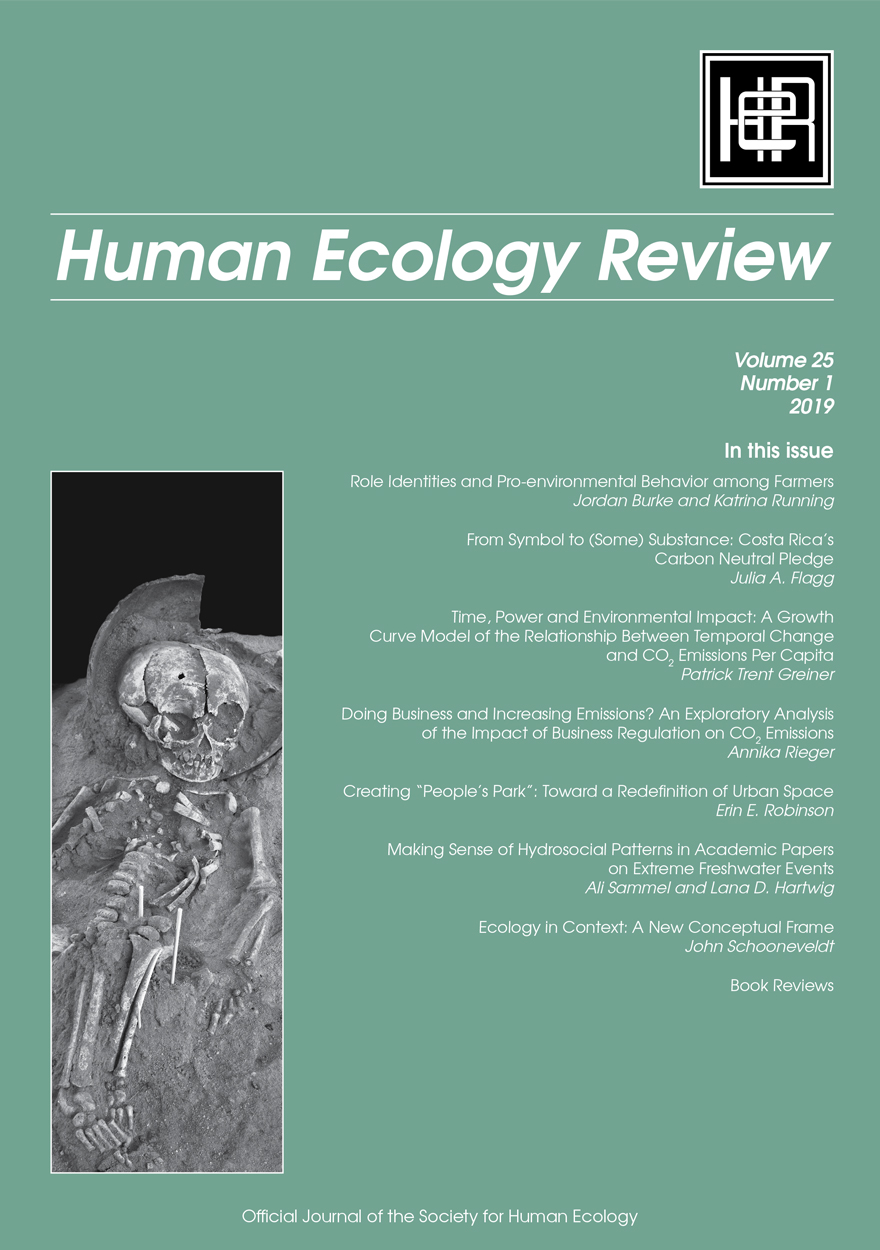
Human Ecology Review: Volume 25, Number 1 »
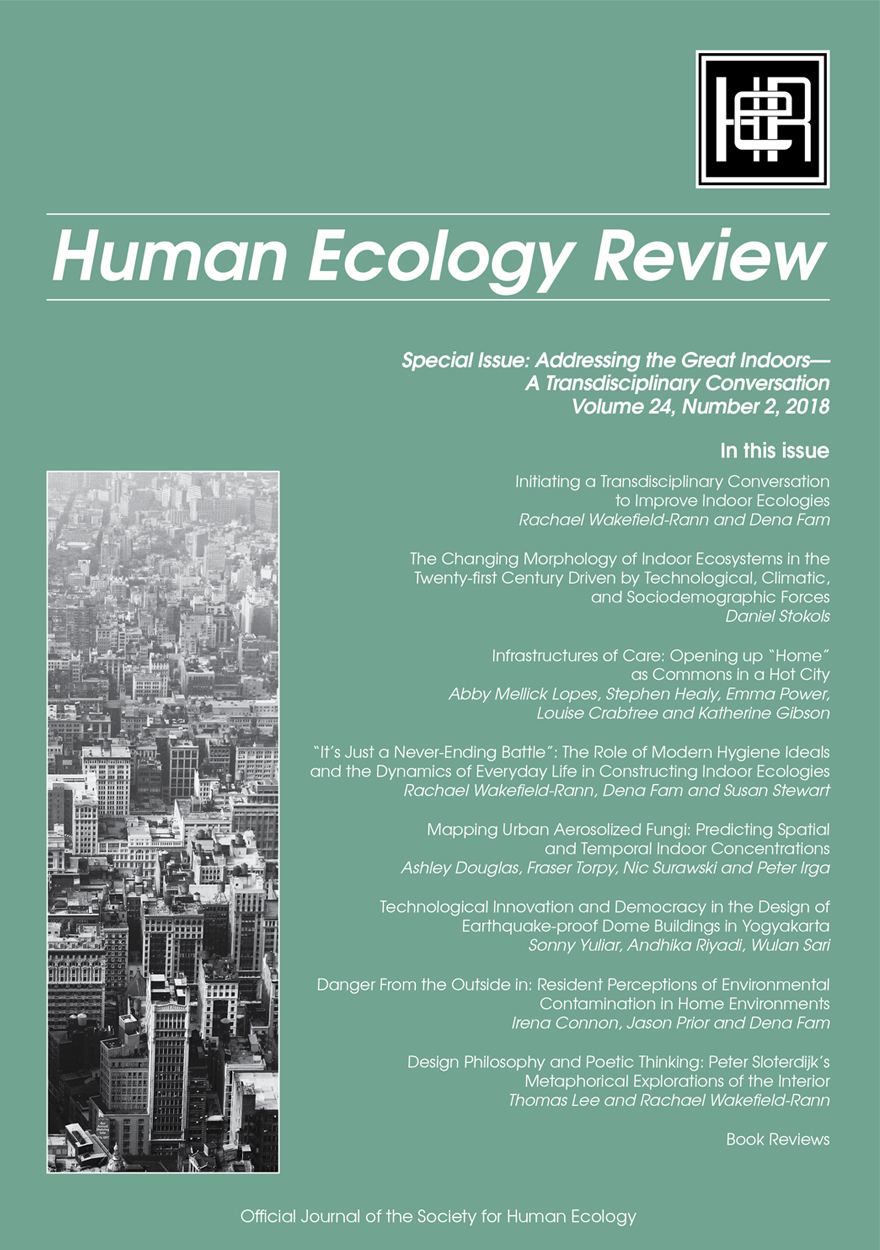
Human Ecology Review: Volume 24, Number 2 »
Special Issue: Addressing the Great Indoors — A Transdisciplinary Conversation
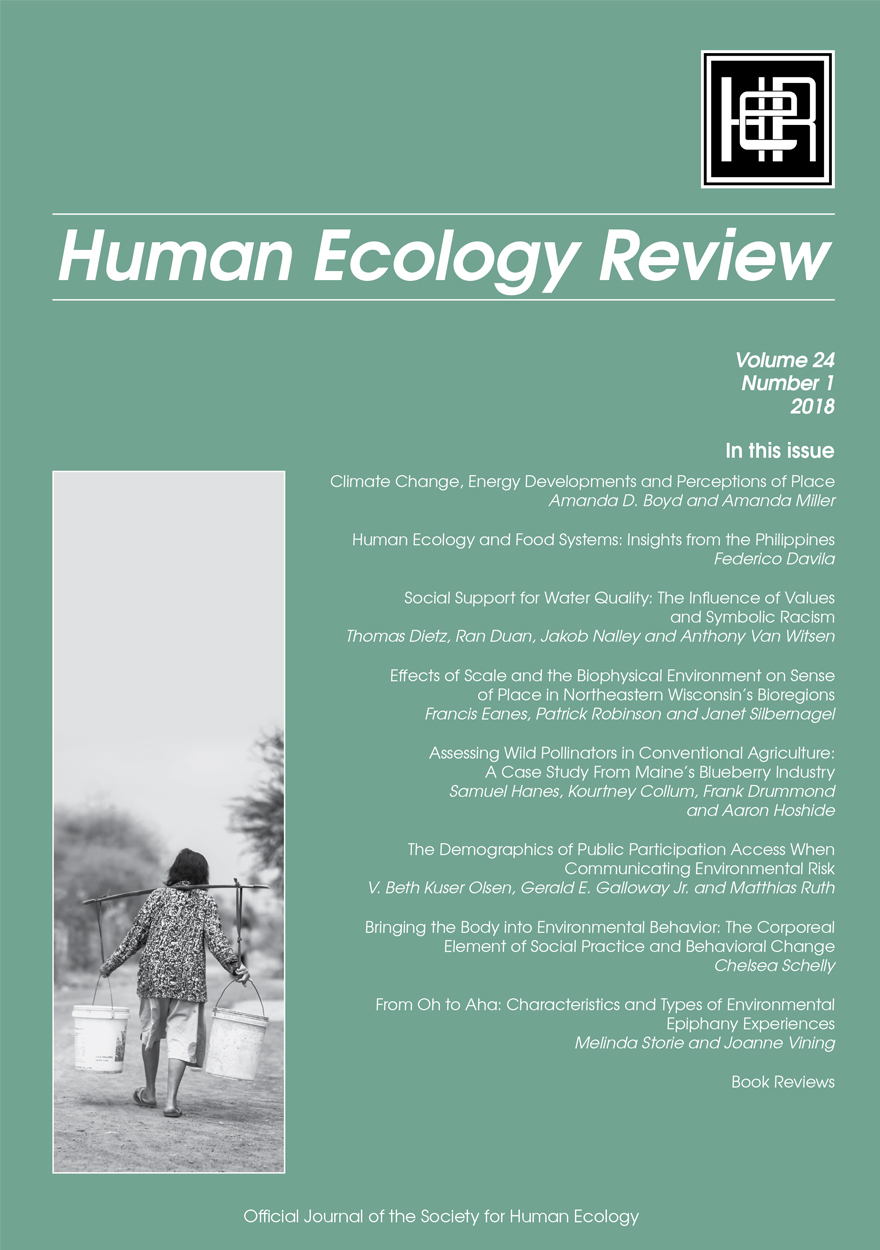
Human Ecology Review: Volume 24, Number 1 »
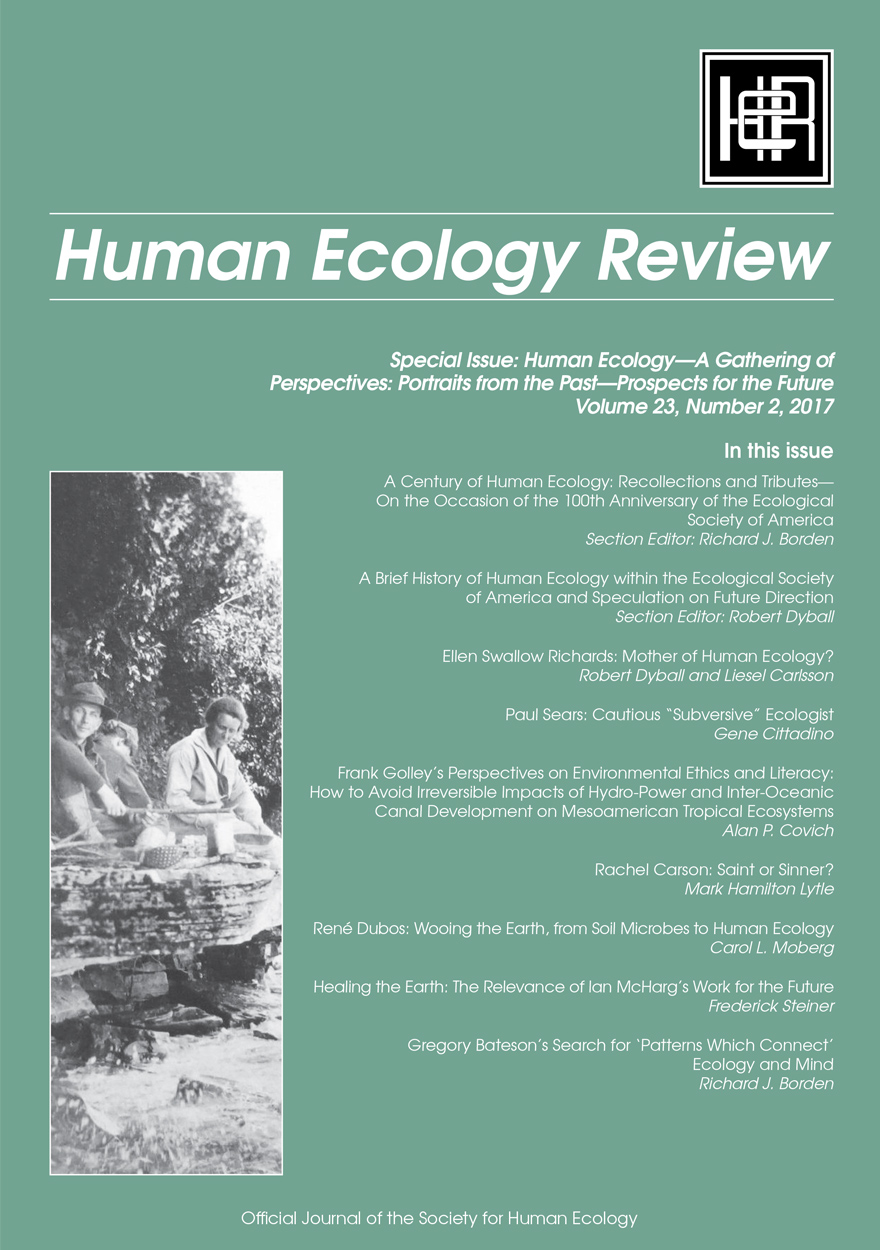
Human Ecology Review: Volume 23, Number 2 »
Special Issue: Human Ecology—A Gathering of Perspectives: Portraits from the Past—Prospects for the Future
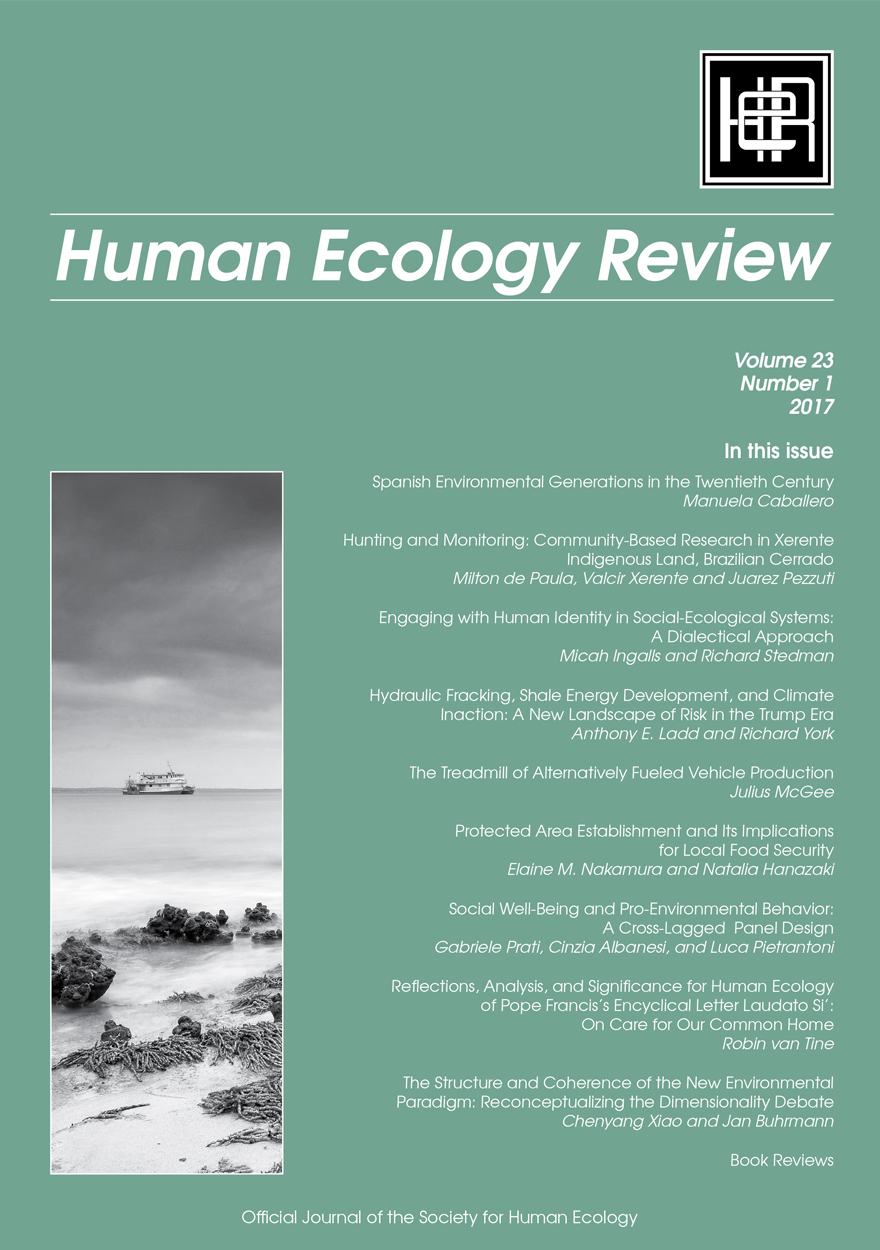
Human Ecology Review: Volume 23, Number 1 »
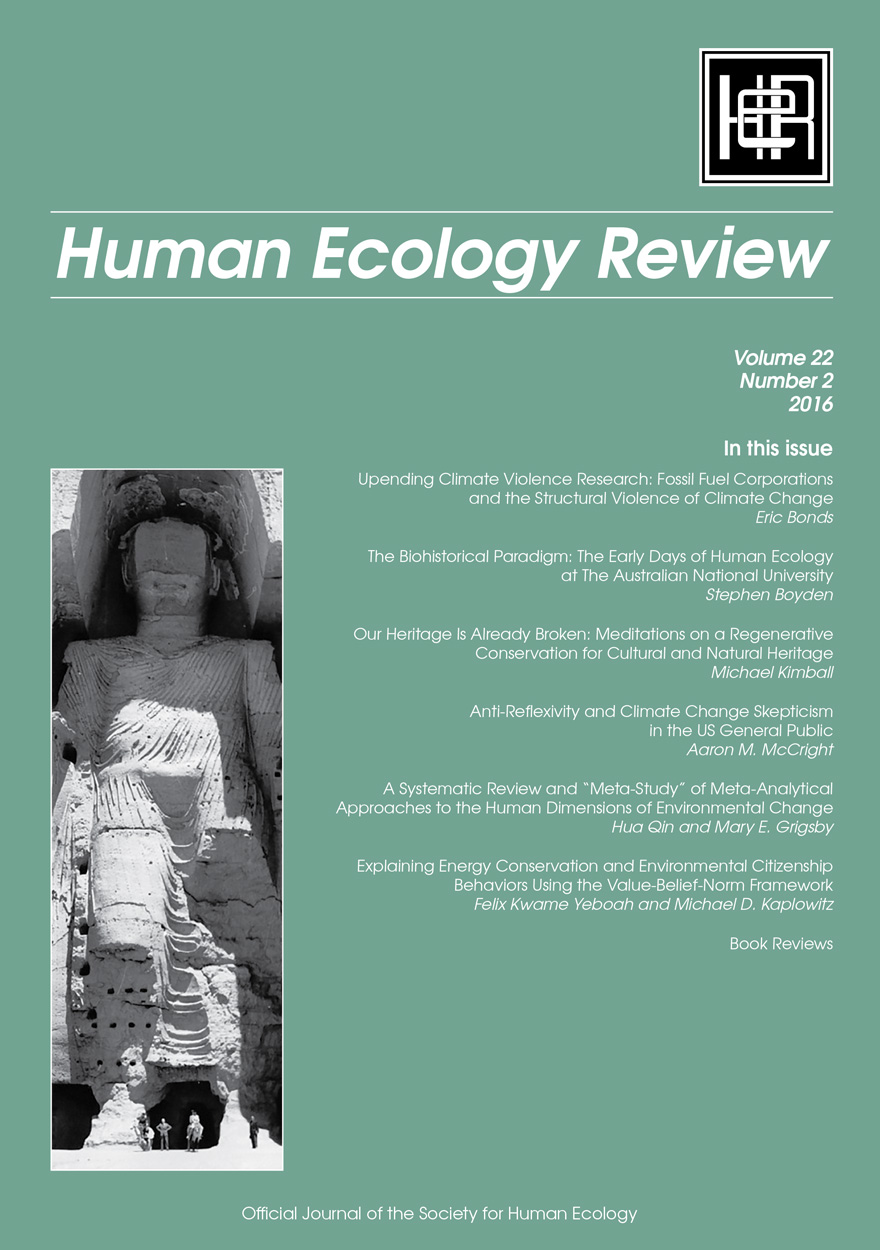
Human Ecology Review: Volume 22, Number 2 »
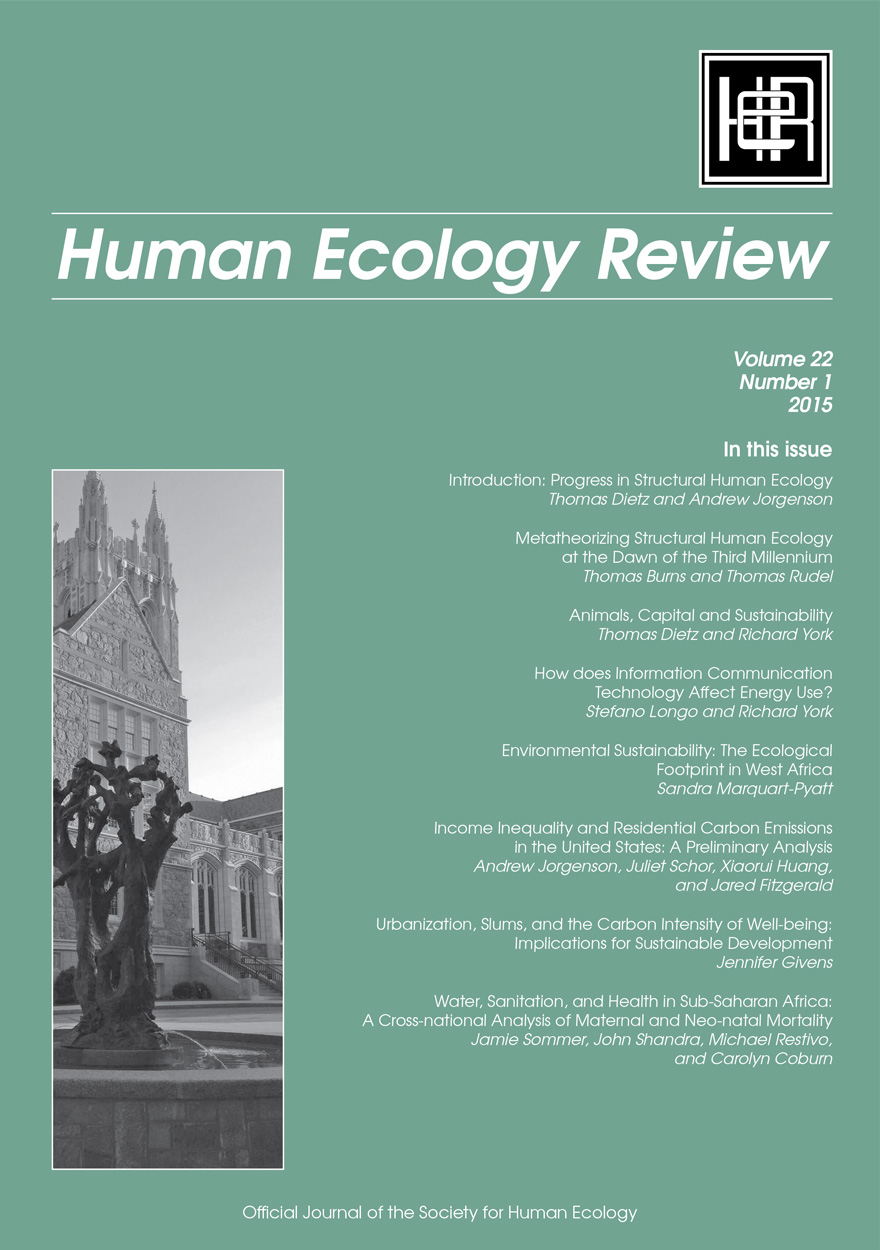
Human Ecology Review: Volume 22, Number 1 »
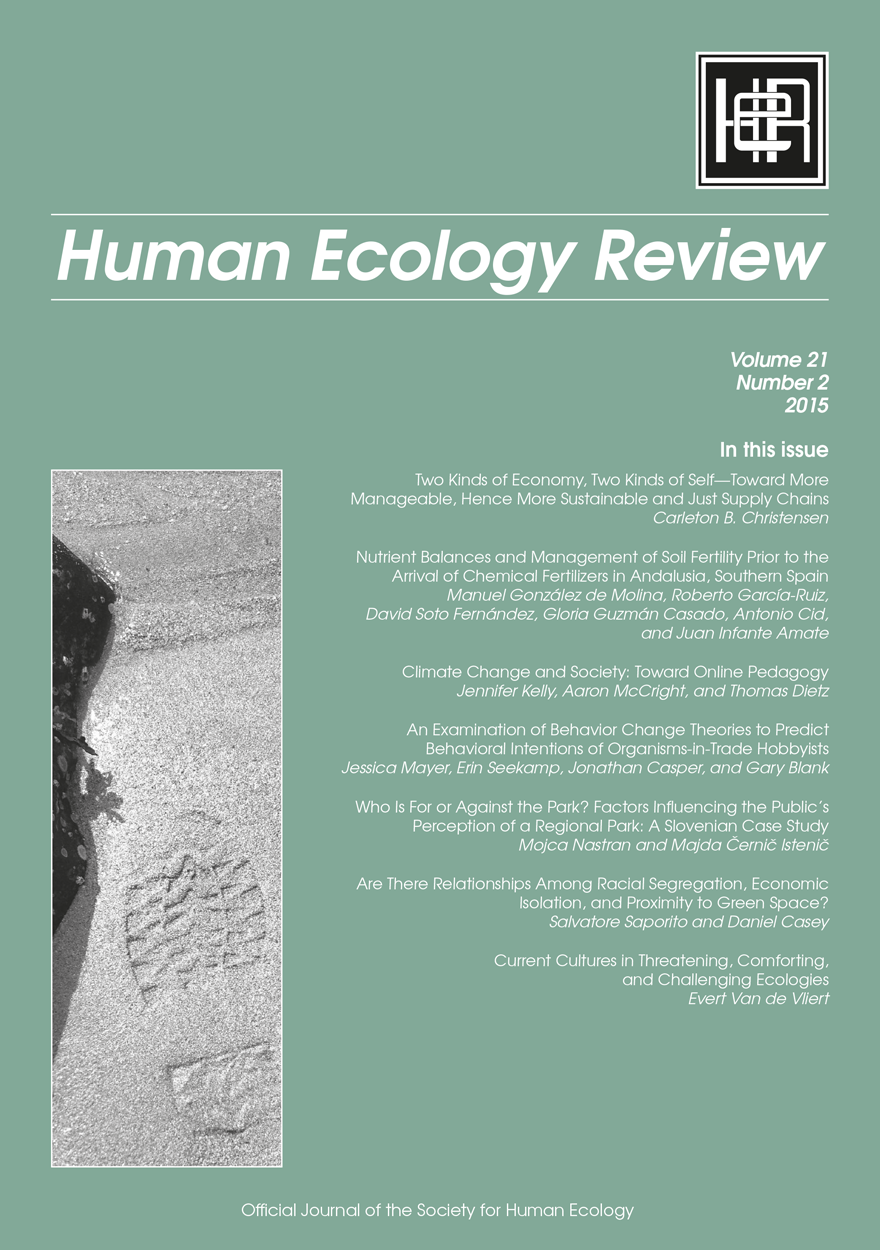
Human Ecology Review: Volume 21, Number 2 »
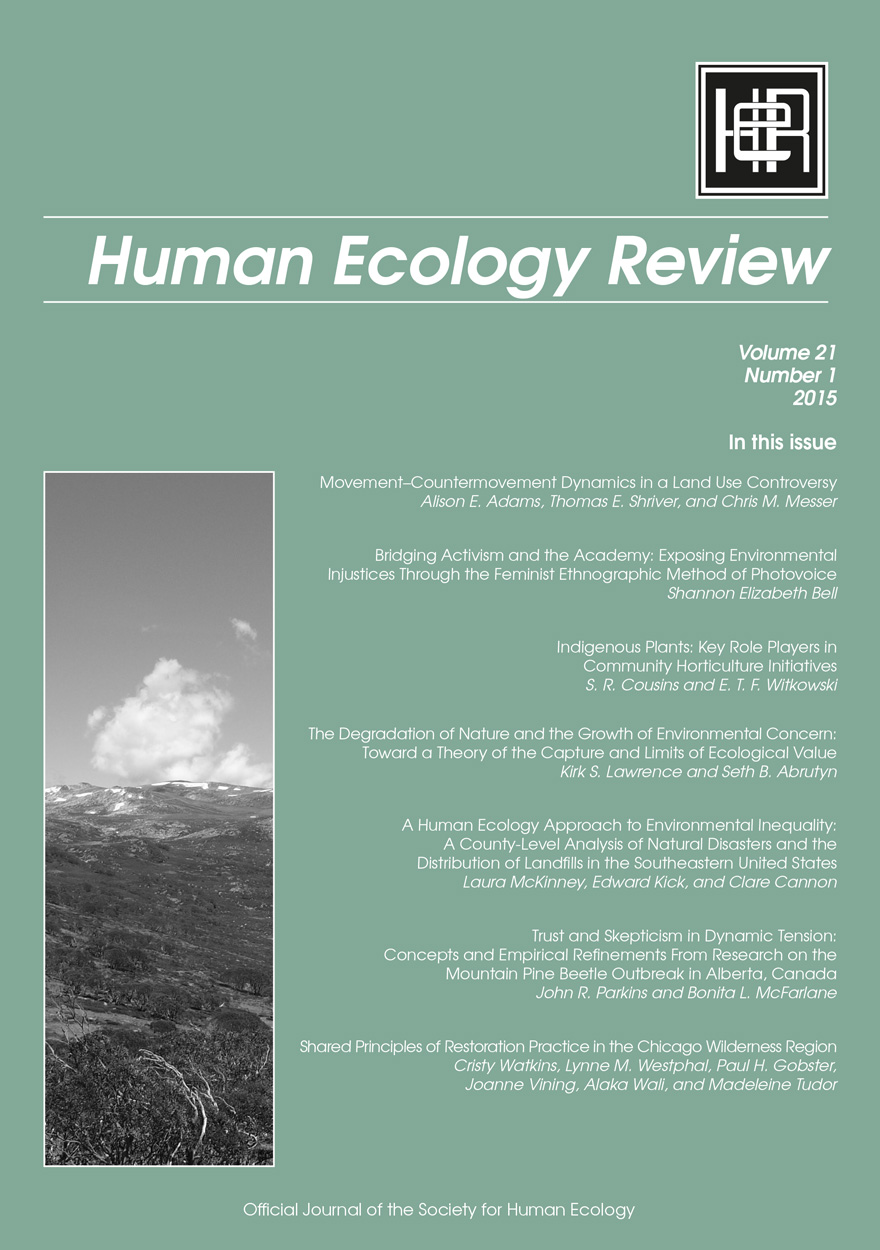
Human Ecology Review: Volume 21, Number 1 »
